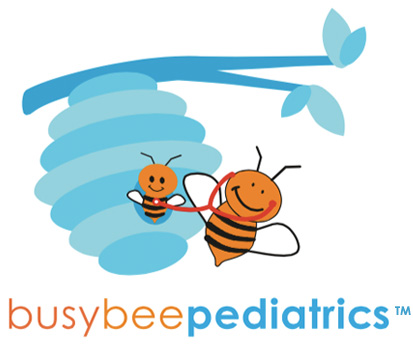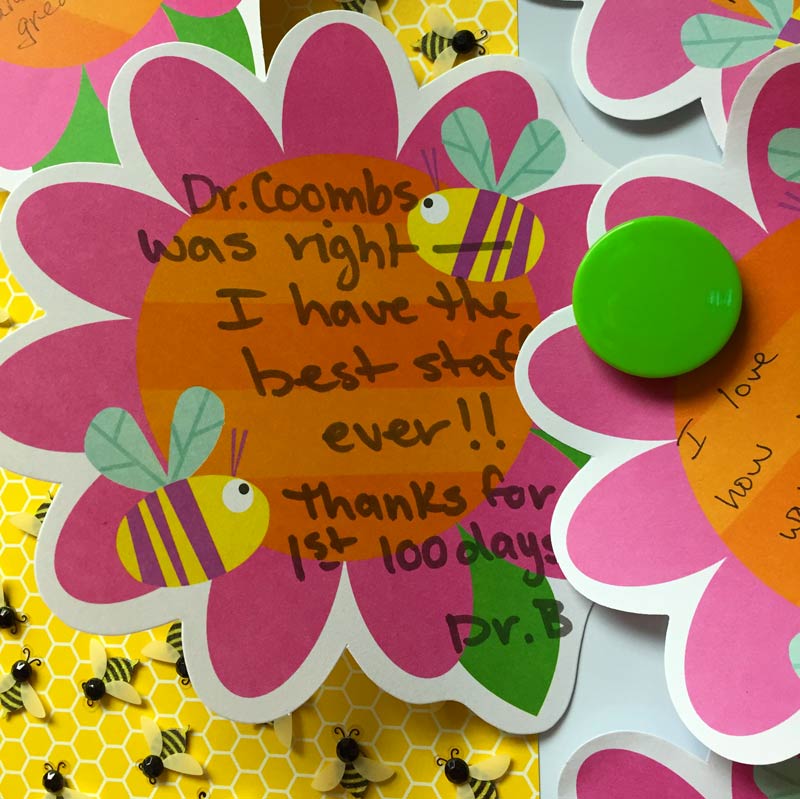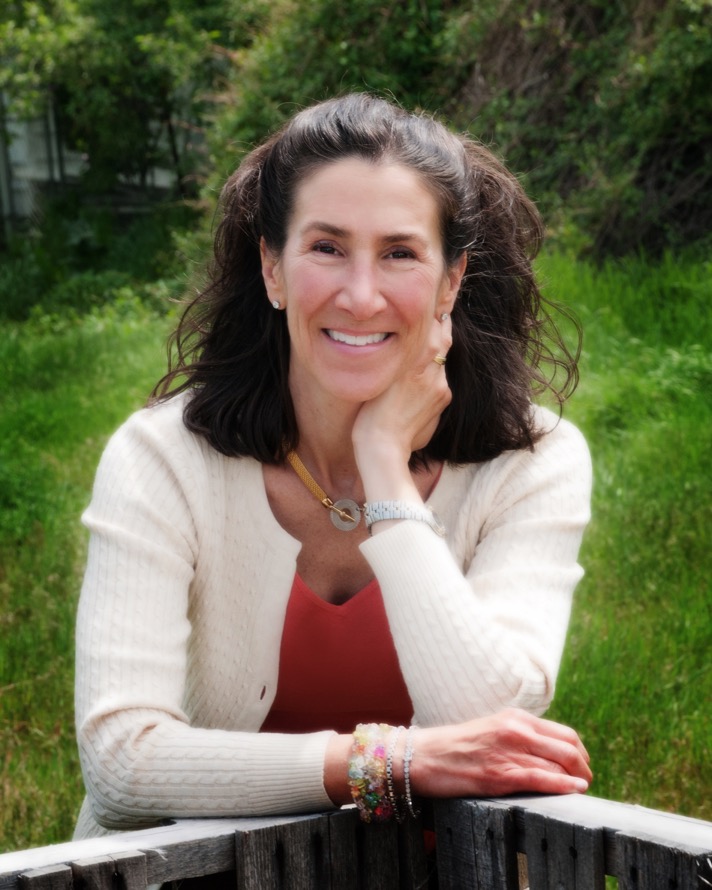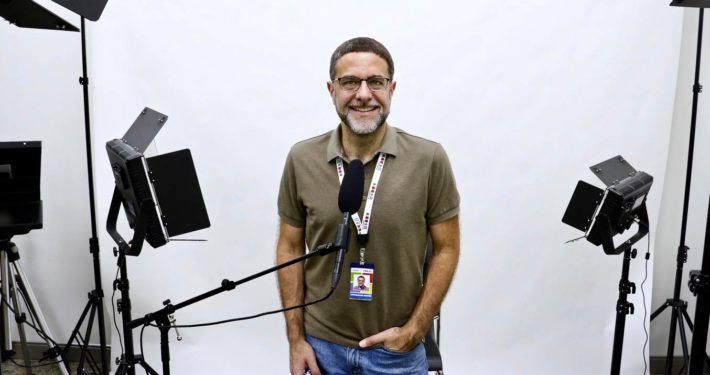Passing the Baton: Keeping Your Practice Independent When You Retire
Dr. Douglas Coombs speaks to the process of selling his pediatric practice, while his successor, Dr. Bonnie Feola, sheds light on why she decided to buy.
After almost 40 years in independent practice, Dr. Douglas Coombs was grappling with the task of finding the right physician to take over his practice. He wanted someone who would carry the practice’s vision, work well with current staff, and show up with the most up-to-date processes and practices.
Conversations with Dr. Coombs, a now-retired independent pediatrician, and his successor, Dr. Bonnie Feola, reveal the importance of building relationships, tapping into local networks, and staying open to opportunity.
Roadblocks to Selling
Dr. Coombs was coming up on 40 years in pediatric care, and he was ready for a change. He says he first “hung up a shingle” in the suburban community of Bountiful, Utah, in 1979. At that time it was a much smaller town, a sleepy haven just north of Salt Lake City. “A few local pediatricians helped me get established,” Dr. Coombs explains. “I was 71 when I finally sold my practice. I really wanted to go and do something else. I had plans to travel internationally. I also wanted to make sure the practice stayed true to its roots.”
With these priorities in mind, Dr. Coombs encountered some roadblocks on the path to selling his practice. “Many independent practitioners struggle to keep their practices independent when they sell, since it can be easier to sell to big hospitals or insurance corporations,” he says. Dr. Coombs himself is one such example of this conundrum. “I was in private practice until 1994, and then sold my practice to an insurance company,” he says. But after this brief interlude with outside ownership, Dr. Coombs reclaimed his practice in 1997. “I missed the freedom of being my own boss, and the challenge of running my own business,” he says.
Today, this preference for independence seems more important than ever as widespread availability of pediatric care diminishes. A 2017 study 1 from the American Academy of Pediatrics (AAP) observed hospitals in four states and tracked their management of pediatric care. The study concluded that “definitive pediatric hospital care is less available than adult care and is increasingly dependent on referral centers.” A 2018 op-ed 2 in the American Council on Science and Health (ACSH) puts it bluntly: “Common [pediatric] conditions being treated at regionalized centers intended to handle complexity will become overburdened… Quality will be impacted. Rural, community and even more populated locations…will lose more and more access to experienced, well-trained staff.” This quality is what’s at stake when independent practices close their doors. And yet, Dr. Coombs says he has noticed a general aversion to independent ownership in younger pediatricians.
“There seem to be more and more people who enjoy the freedom of being an employee,” says Dr. Coombs. “Big insurance companies or hospitals will hire you on right out of residency. People like working 9-to-5 and don’t want the pressure of running a business. Personally, I enjoyed running the business. I was fascinated by the process of seeing what I could do better. The biggest thing, I think, is that people don’t want to deal with the hassle of human resources. But I think that being your own boss is worth the headache – I didn’t view it as a headache. And Dr. Feola is the same way.”
Dr. Bonnie Feola confirms this sentiment. “Dr. Coombs originally started the practice when there were few other pediatricians in the area,” she says. “Now, there’s more access to pediatric care. There’s an extension of the specialty services that we need, so we’ve been able to maintain being a private practice when a lot of other practices had joined the major hospital system. And I deeply value our independence.” What does Dr. Feola relish about independence? “We can make decisions on our own. We can move forward with those decisions as quickly as we want to. We are always doing the best thing for the patient.”
Focus on Relationships
Although Dr. Coombs encountered many hurdles and setbacks along the road to selling his practice, for his successor, the process couldn’t have been smoother. After purchasing Dr. Coombs’ practice, Dr. Bonnie Feola officially opened as Busy Bee Pediatrics in 2015. A number of factors influenced her decision to buy the practice, but she speaks first of the community both within and without the walls of Busy Bee. “We had a wonderful committed staff and a thriving practice in an amazing location,” says Dr. Feola. “So I decided to take the risk and jump right in. My family was very supportive. So here we are!”
Dr. Feola is a board-certified pediatrician, and has been practicing for over 22 years. She attended Baylor College of Medicine in Houston, and completed her pediatric residency at Texas Children’s Hospital. Prior to relocating to Salt Lake City, Utah, in 1998, she worked in a multispecialty group in Houston, Texas, and a community-based pediatric office in Philadelphia. She is also the medical director and CEO of a company that supports various organizations with current pediatric policies and expert advice.
Dr. Feola says she had wanted to be a pediatrician since she was a little girl. “I had a great-uncle who was a pediatrician,” she says, “and I remember going to his office and being fascinated by his medical cabinet, the smell of leather from his exam table… He had all of this knowledge, and I gravitated toward it.” Feola decided in college that she was going to be pre-med. “When I got to medical school, everyone said, ‘Whatever you think you want to go into, you’ll probably change your mind.’ But I didn’t. I loved pediatrics from the start.”
“We had a wonderful committed staff and a thriving practice in an amazing location. So I decided to take the risk and jump right in. My family was very supportive. So here we are!”Dr. Bonnie Feola
Finding the Right Practice
How did Dr. Feola arrive at her enthusiastic decision to take on the responsibility of owning her own practice? Dr. Feola says that when she came to Dr. Coomb’s office, she wasn’t looking to purchase a practice. She was first hired for a short-term position.
When Dr. Feola arrived, Dr. Coombs had been looking to sell, and his progress was stalled. He tells a story of encountering many difficulties in his search to find someone to buy his practice. “I started the process of gathering data and making information available about my practice in 2014,” says Dr. Coombs. “During that process, along came a small group of pediatricians and we began some discussions. Most of that year I was talking with them, and it looked like I was going to sell. It came down to pretty much the last day before we were going to close, and they backed out. It was more than they thought they could handle. I had a pretty big practice. I don’t think they realized that they’d have to supervise my nurse practitioners. At the time I had seven nurse practitioners working for me. They backed out, and I was crestfallen.”
Dr. Feola’s transition period seemed to align perfectly with Dr. Coombs’. She explains her motivations for considering a change. “I was in a transition in my career,” she says. “I had been working as a pediatric director for a multi-site clinic organization, overseeing 10 employee-based offices. After four years I decided I wanted to move on, and was looking to get back into primary care. I actually saw an ad in the AAP Utah chapter newsletter that Dr. Coombs had posted, seeking part-time help at his office. I thought I’d work for him part-time while I figured things out.”
Dr. Feola’s subsequent purchase of the practice was unrelated to her initial position in Bountiful. In fact, the opportunity took her by surprise. “Dr. Coombs and I connected right away,” she explains. “I developed a great rapport with patients and with the staff. Pretty shortly after, he came up to me and said: ‘I think you should buy my practice.’ I told him: ‘Thank you for the vote of confidence; I wasn’t even considering buying your practice. Let me think about it.’”
Dr. Coombs’ success in selling his practice was influenced by outreach and marketing, but more so, his success resulted from the strong working relationship he built with Dr. Feola. For Dr. Feola, the spontaneous opportunity seemed too good to pass up. “There aren’t a lot of instances where an up-and-thriving practice comes up for sale,” says Dr. Feola. “It was an opportunity that I really wanted to consider. I thought about where I was in my career, and about my family, and decided that this was an opportunity that wouldn’t necessarily come up again.”
Before taking over the practice, Dr. Feola wanted to thoroughly understand Dr. Coombs’ business. And Dr. Coombs was ready to help her. “I told Dr. Coombs I wanted to do some due diligence and get an assessment of the office,” says Dr. Feola. “He told me, whatever you need, I’ll help make it happen.”
Open access to information prior to her purchase was an essential component of Dr. Feola’s decision. She speaks highly of Dr. Coombs’ graciousness in allowing her access to “the office manager, the billing director, the accountant, anyone and everyone.” Dr. Feola also hired external evaluators to assess the practice. “Dr. Coombs opened all of his books and made his time available to help me feel comfortable with my decision,” she says.
“The staff is the practice. The providers, the front office staff… they know the community, they know the families. I’m the new person here.”Dr. Bonnie Feola
The Importance of Community
Dr. Feola came into Bountiful with a strong patient-centered ethic. “Close relationships with patients are something I constantly strive for,” she says. “I find that the easiest part of my work is seeing patients. When I go in and see patients, that’s what I love.”
Dr. Feola understands that Dr. Coombs’ practice established itself through connections with families – connections that now span generations. In taking on the practice, she was intent on preserving those ties and ensuring that family loyalty transferred under new practice management. “It’s important to us to maintain our personal connections with the families in Bountiful,” says Dr. Feola. “Children who came to see Dr. Coombs are now adults having their own families, and they are still coming to our practice. I love the personal feel of the place.”
In fact, Dr. Feola’s transition into practice management was smooth as a direct result of her rapport with staff. “When I took over ownership of the practice some of the staff had been with the practice since the beginning, for 32 years, some for 18 or 20,” she says. “I told the staff, ‘I can’t do this transition without you.’ The staff is the practice. The providers, the front office staff… they know the community, they know the families. I’m the new person here. I told them, ‘if all of you walk out the door, I don’t really have a pediatric practice.’”
Since Bountiful is close to Salt Lake City, “it isn’t isolated from resources,” says Dr. Feola. “We’re 20 minutes from the local children’s hospital, so there are specialists I can refer folks to. There are other hospitals with labor and delivery in the area, so we could grow the practice over time. It’s an ideal setup for an independent practice.”
The Future of the Practice
One of the largest changes that Dr. Feola has implemented at Busy Bee is working toward recognition as a Patient-Centered Medical Home (PCMH).
“Everything we do here is motivated by the desire to best serve our patients,” says Dr. Feola. “My vision for the practice becoming a National Committee for Quality Assurance (NCQA) Medical Home is that we continue to improve upon our consistency in maintaining our high standards of appropriate care. Going through the process of being PCMH-recognized empowers the staff to stay up to date. We can feel sure that we’re not letting things fall through the cracks.”
Dr. Feola also comments that the PCMH recognition will help Busy Bee thrive in the marketing realm. “A medical office is a business,” she says. “It’s important for us to be viable as a business in the future. Being a PCMH helps us to become recognized as a preferred provider on insurance panels. That’s important, because 90-95 percent of our new patients find us either on their insurance list, or on Google.”
While he acknowledges that PCMH recognition might help Busy Bee gain visibility, Dr. Coombs expressed his concern that taking on such projects might create more bureaucratic hoops for the practice to jump through. “Being under the old system, I was suspicious of PCMH,” he says. “It used to be all we could do to get insurance companies to pay, and make a case that we were providing the best care. So now these designations make me think it’s just another way for insurance companies to control how much they pay. Who really has the patient in mind? I think it’s the pediatricians.”
Dr. Feola agrees. “Absolutely,” she says. “We can’t be totally sure of PCMH’s effectiveness yet. However, we can’t talk about the results until we have the data, so our practice will be a part of collecting that data. As long as it’s not detrimental to patients, and may possibly help us improve our processes, it’s not a bad thing.”
“It’s important for us to be viable as a business in the future. Being a certified Medical Home helps us become recognized as a preferred provider on insurance panels. That’s important, because 90-95 percent of our new patients find us either on their insurance list or on Google.”Dr. Bonnie Feola
While he’s kept apprised of developments at Busy Bee, Dr. Coombs’ transition to retirement has been quite smooth and he’s enjoying his autonomy. So far, his retirement has allowed him to engage in projects close to his heart. Shortly after retiring, Dr. Coombs volunteered to serve as a medical advisor for his church. “This opened up opportunities for service and travel,” he says. “My wife and I were assigned to the Brigham Young University Jerusalem Center for Near Eastern Studies, a study abroad program where university students from all over the world go to Jerusalem. We lived in Jerusalem helping with the operations there, and in Tiberius, Israel for 18 months, contributing to a community we care for.
On the subject of her long-term plans for the practice, Dr. Feola says: “Other than continuing to provide excellent pediatric care, I’m not entirely sure yet. Eventually I would like to try providing telemedicine, especially now that we have hired a psychologist to help our patients with behavioral health issues. But for now, during the early years, I want to focus on building trust with staff and community to make sure that our transition and our new branding is successful.”
Dr. Coombs expresses his confidence in Dr. Feola. “She’s already made strides in improving the practice, and I’m sure she will continue to do so,” he says. Dr. Coombs, his staff, and the community of Bountiful can feel assured that Busy Bee Pediatrics is in capable hands.
[1] Franca L. Urbano, Michael L. McManus, “Trends in Regionalization of Hospital Care for Common Pediatric Conditions,” Pediatrics 141, no. 1 (December 2017) 10.1542/peds.2017-1940 ↑
[2] Jamie Wells, “The Steady Demise of Pediatrics,” American Council on Science and Health, January 9, 2018, https://www.acsh.org/news/2018/01/09/steady-demise-pediatrics-12360 ↑
Emily Graf is a freelance writer, wilderness educator, and English teacher living in Colorado. She is passionate about telling stories that promote equal access to quality health care. She can be contacted at emgraf11@gmail.com for inquiries.












